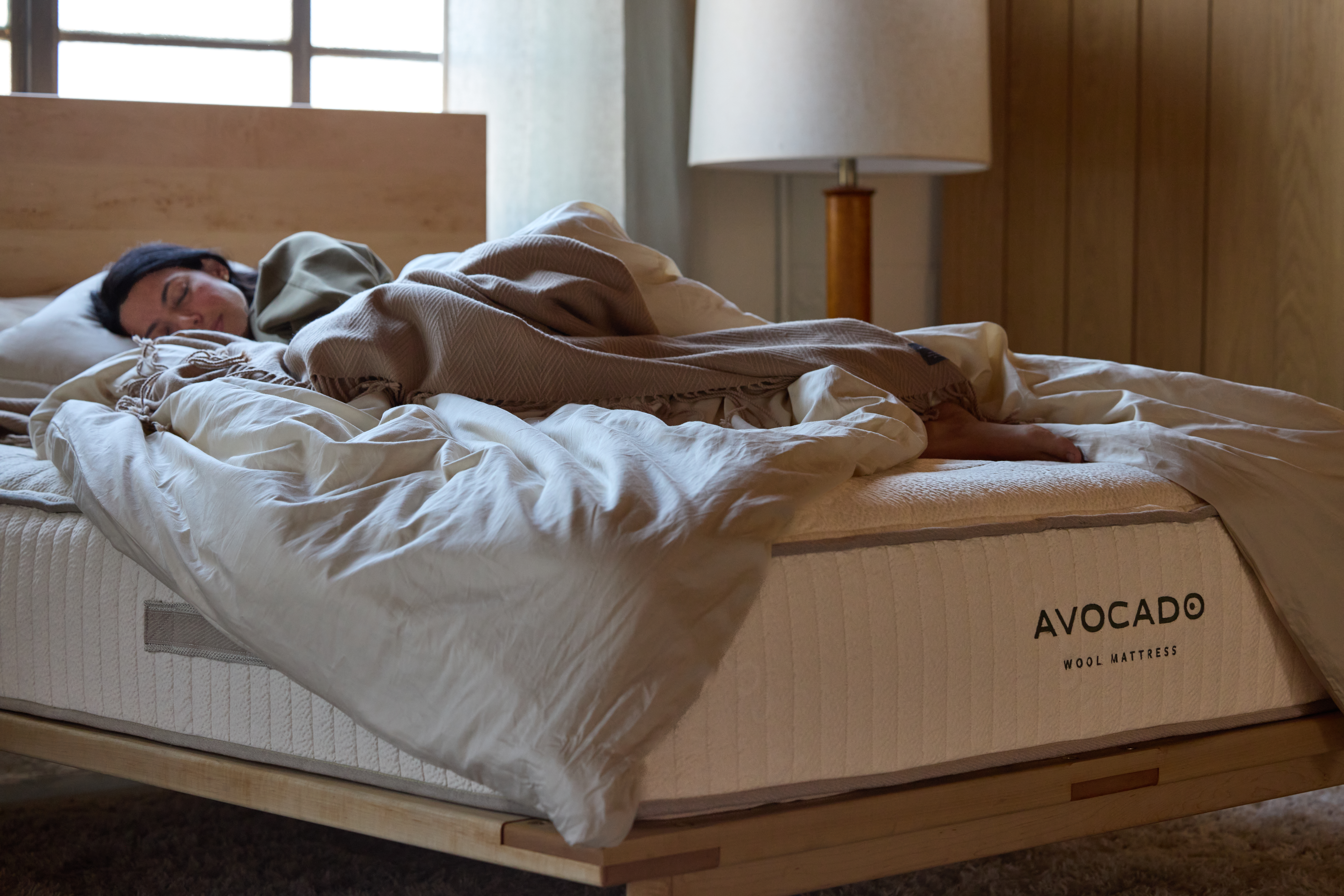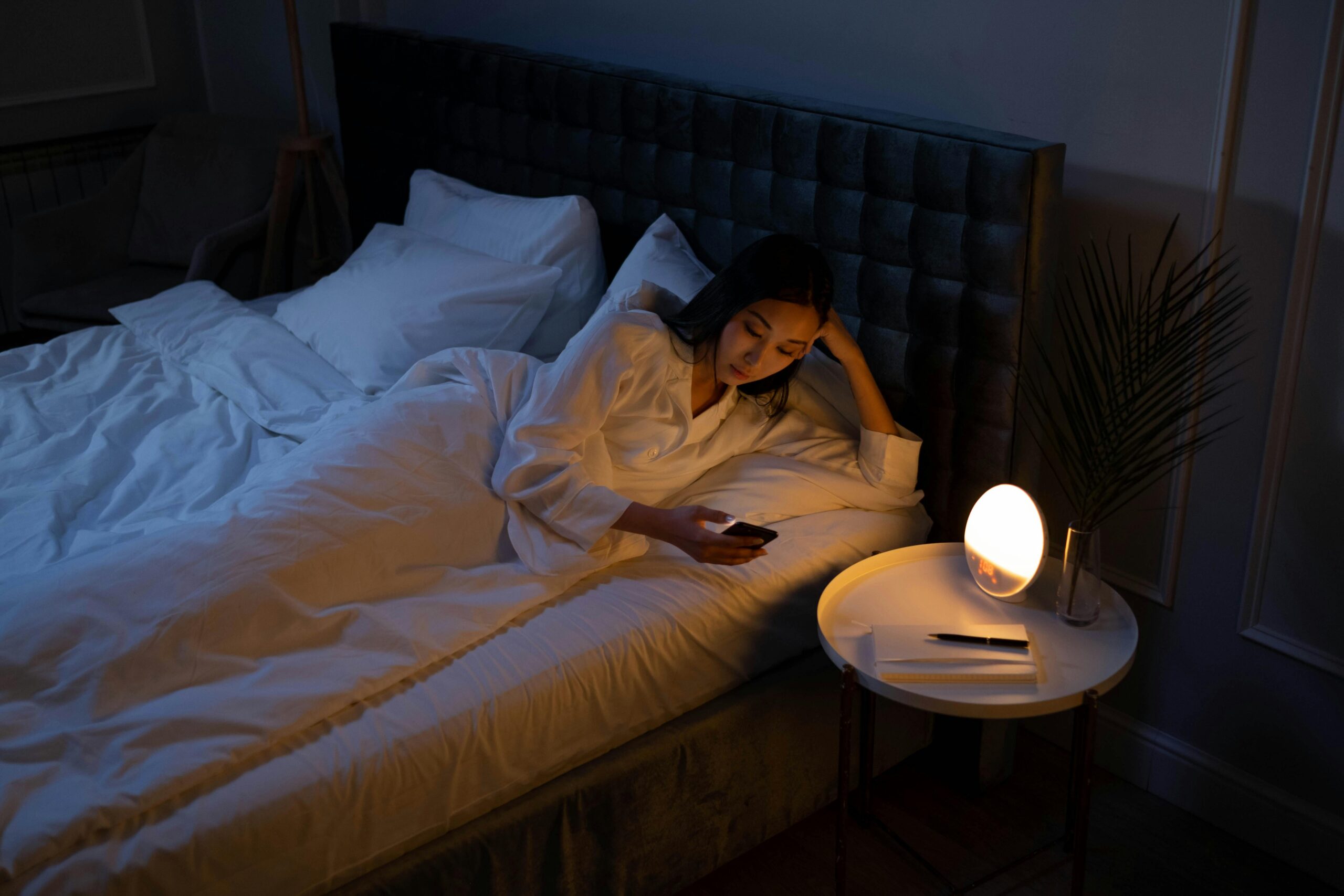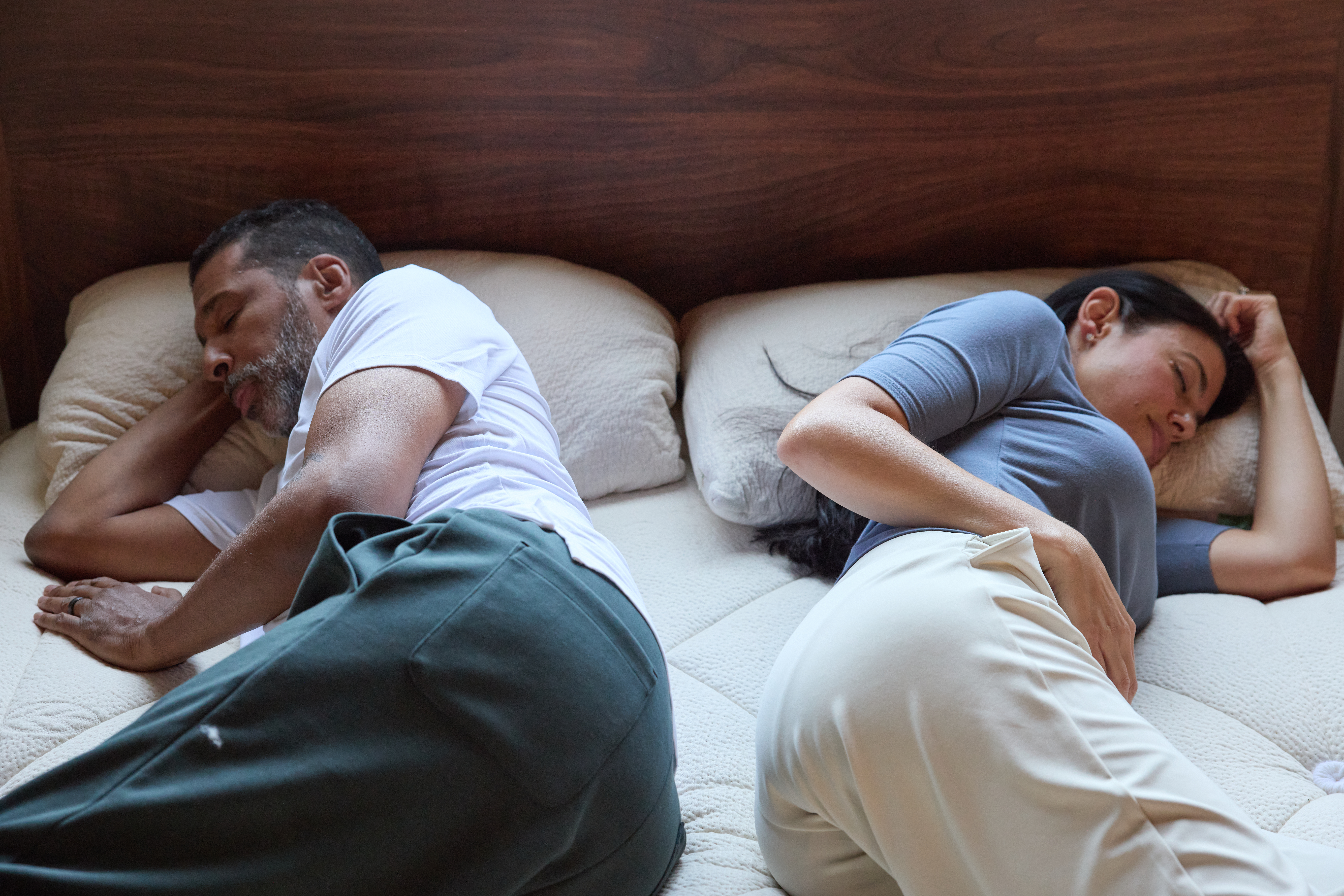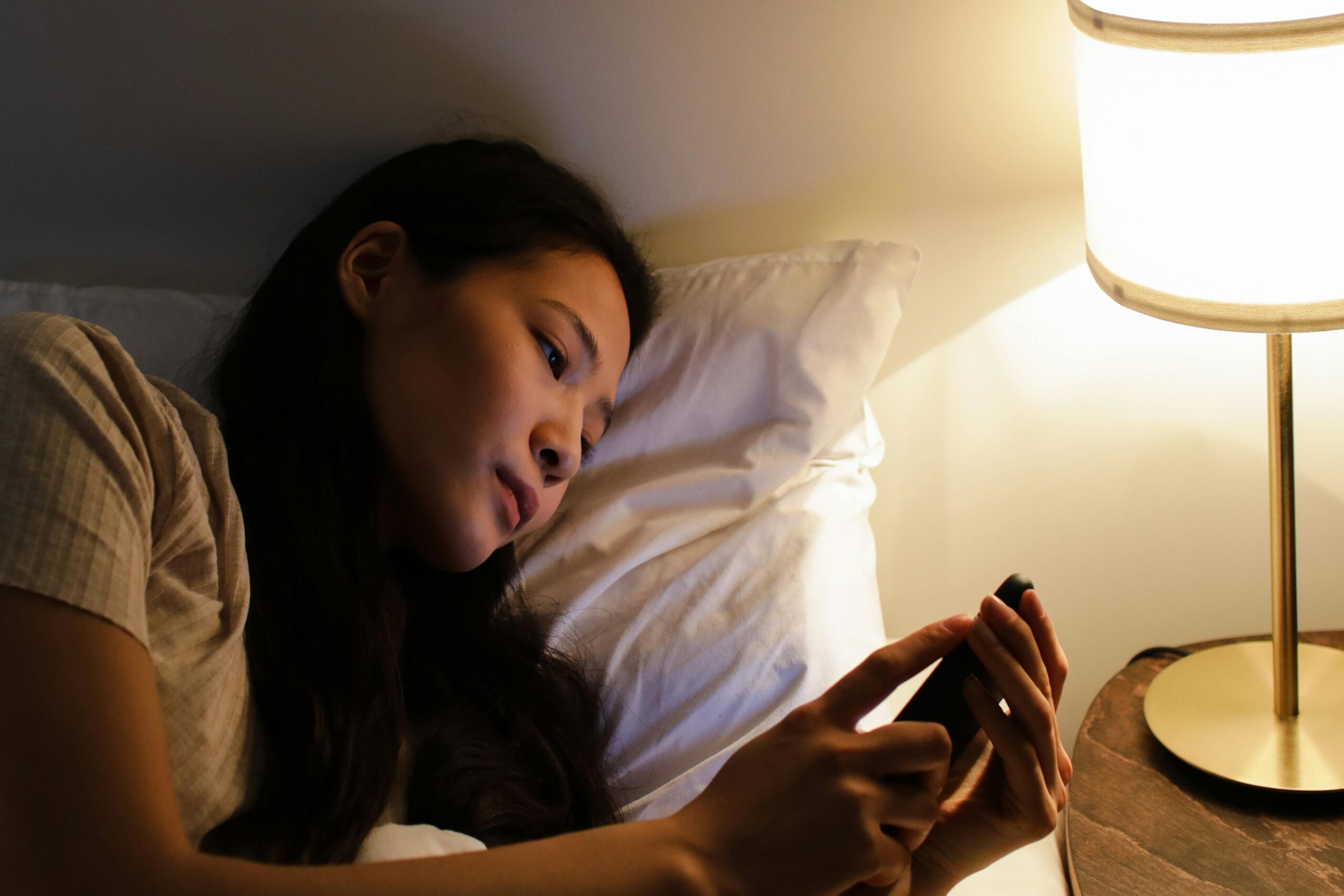Wearable tech. Sleep rings. Smart beds. Blue light glasses. Sleep score apps. If you’ve dipped even a toe into wellness culture lately, you know that sleep tracking is literally everywhere. And like any shiny trend, it’s easy to get hooked on the promise: track your sleep, analyze your data, optimize your rest, and finally wake up feeling amazing.
But here’s the thing: while sleep technology can be helpful, it’s not the whole picture. In fact, focusing too much on the numbers can sometimes make sleep worse, not better.
Let’s take a closer look at the rise of sleep tech, what the science says, and how to use it in a way that supports your rest, without stressing you out.
The Rise of Sleep Data Culture
Our culture loves optimization. And sleep, once considered the most passive part of our lives, has become a new frontier for self-improvement. Reports project that the global sleep tech market will reach $64 billion by 2029.
From Whoop and Oura to Fitbit, Garmin, Apple Watch, and even smart mattresses, sleep tech promises real-time data on your sleep cycles, heart rate variability, REM stages, oxygen levels, and more.
The appeal is obvious: if you can measure it, you can improve it. But there’s a catch…

Read More: Is Your Sleep Tracker Making You Anxious?
Perfectionism Doesn’t Sleep Well
While sleep tracking devices offer fascinating insights, they aren’t perfect. Consumer-grade devices generally rely on movement (actigraphy), heart rate, and algorithms to estimate sleep stages. However, research from Johns Hopkins Medicine suggests that these devices have notable limitations in accuracy, particularly when estimating light, deep, and REM sleep.
More importantly, obsessing over nightly data can backfire. This phenomenon even has a name: orthosomnia, a term coined by researchers in the Journal of Clinical Sleep Medicine to describe anxiety caused by trying too hard to achieve perfect sleep metrics.
The paradox? The more you stress about getting good sleep, the harder it becomes to actually sleep.
Where Sleep Tech Actually Shines
To be clear: sleep technology isn’t all bad. When used thoughtfully, it can offer helpful awareness, such as:
- Identifying obvious trends (like consistently short sleep duration)
- Encouraging healthier habits (consistent bedtimes, wind-down routines)
- Spotting lifestyle patterns that impact sleep (late-night caffeine, heavy meals, alcohol)
- Highlighting potential red flags that may warrant a conversation with a healthcare provider
Sleep trackers may also provide valuable data for individuals managing chronic conditions, adjusting to shifts in work, or recovering from jet lag, where extra insight into patterns can be beneficial.
The Danger of Turning Rest Into a Report Card
Here’s where things get tricky: sleep is deeply subjective. You may wake up feeling refreshed after a night your tracker deems “poor,” or groggy after a night it scores highly. Because these devices can’t measure your brain waves directly (without clinical equipment), their data should be seen as estimates, not absolutes.
Sleep expert Dr. Jade Wu explains it like this: “You are the most reliable measure of your own sleep quality. If you wake feeling rested, alert, and functional, that matters far more than any number on your app.”
In other words, don’t let your sleep score dictate your mood for the day.
Read More: How to Combat Sleep Anxiety
The Allure of Biohacking
The rise of sleep tech has also fueled the broader biohacking movement—tweaking your body’s inputs (light exposure, supplements, gadgets, even cold plunges) in search of optimal health. And yes, some of these experiments can absolutely help your sleep: blue-light-blocking glasses, early morning sunlight, cooling bedding, or magnesium may make a real difference.
But chasing perfect optimization can become exhausting in itself. Remember: your body already knows how to sleep. Sometimes, the best “hack” is keeping your bedroom cool (with things like natural linen or organic cotton sheets), your wind-down routine simple, and your expectations reasonable. You don’t need an elaborate tech stack to earn great sleep—you just need enough consistent habits that support your body’s natural rhythm.

Read More: Why Listening to Your Circadian Rhythm Is Essential to Good Health
Track Your Sleep Without Losing Any Over It
If you’re curious about sleep tracking or already using a device, here’s how to approach it in a balanced, healthy way:
1. Focus on Trends, Not Single Nights
A bad night here and there isn’t worth stressing over. Look for patterns over weeks, not one-off scores.
2. Use It for Curiosity, Not Judgment
Let your tracker spark helpful curiosity (“I slept better after an evening walk”), not criticism (“I only got 45 minutes of deep sleep, I’m doomed!”).
3. Pair It with Subjective Check-Ins
Ask yourself: Do I feel rested? Am I functioning well during the day? How’s my mood? Use your own experience as your primary feedback loop.
4. Watch for Orthosomnia Traps
If checking your sleep data makes you more anxious about your rest, it may be time to take a break from tracking your sleep.
5. Use the Data to Support Behavior Change
If your tracker consistently shows fragmented sleep on nights when you have late-night snacks or alcohol, that’s valuable insight for habit tweaks.
When It’s Time to Call the Sleep Pros
While sleep trackers can highlight trends, they’re not diagnostic tools. If you’re experiencing ongoing insomnia, daytime fatigue, loud snoring, or other signs of a possible sleep disorder, it’s always wise to consult a sleep specialist. Clinical sleep studies (polysomnography) remain the most accurate way to assess sleep disorders.
Good Sleep Is a Feeling, Not a Metric
At the end of the day, sleep trackers can’t measure the most important thing: how you feel when you wake up.
Sleep isn’t a performance to optimize, it’s a biological rhythm to honor. And sometimes, good sleep looks like eight perfect hours. At other times, it’s six solid hours followed by a quiet morning, coffee, and a sunny walk that resets your whole system.
If you find sleep tech fun or motivating, wonderful, let it serve you. But if the numbers start dictating your mood, your day, or your anxiety levels? Remember that you’re not failing at sleep. You’re simply human. And your body knows how to rest better than any algorithm ever will.
Real rest starts when you stop chasing it and start trusting your body to lead the way.

Read More: 6 Ways to Recover After a Bad Night of Sleep
Have feedback on our story? Email [email protected] to let us know what you think!

Shop Pillows
The Essential Organic Pillow Collection
Gentle, breathable, non-toxic support.







